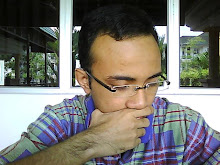As mentioned earlier, the sick are exempt from fasting. But some, for whatever reasons, do decide to observe fasting. For physicians treating Muslim patients, the following guidelines are suggested.
Diabetic Patients: Diabetics who are controlled by diet alone can fast and hopefully, with weight reduction, their diabetes may even be cured or at least improved. Diabetics who are taking oral hypoglycemia agents like Orinase along with the diet should exercise extreme caution if they decide to fast. They should reduce their dose to one-third and take the
drug not in the morning, but in the evening at the time of ending the fast. If they develop low blood sugar symptoms in the daytime, they should end the fast immediately. Diabetics taking insulin should not fast. If they do, at their own risk, they should do so under close
supervision and make drastic changes in the insulin dose. For example, they should eliminate regular insulin altogether and take only NPH in divided doses after ending the fast or before the pre-fast breakfast.
Diabetics, if they fast, should still take a diabetic diet during the pre-dawn meal, the ending of the fast meal, and dinner. The sweet snacks common in Ramadan are not good for their disease. They should check their blood sugar before breakfast and after ending their fast.
Hypertensive or Cardiac Patients: Those who have mild to moderate high blood pressure along with being overweight should be encouraged to fast, since fasting may help to lower their blood pressure. They should see their physician to adjust medication. For example, the dose of water pill (diuretic) should be reduced to avoid dehydration, and long acting
agents like Inderal LA or Tenormin can be given once a day before the pre-dawn meal. Those with severe hypertension or heart diseases should not fast at all.
Migraine Headache: Even in tension headache, dehydration or low blood sugar will aggravate the symptoms, but in migraine during fasting, there is an increase in blood free fatty acids which will directly affect the severity or precipitation of migraine through release of catecholamine. Patients with migraines are advised not to fast.
Pregnant Women (normal pregnancy): This is not an easy situation. Pregnancy is not a medical illness. Therefore, the same exemption does not apply. There is no mention of such exemption in the Quran. However, the Prophet said that pregnant and nursing women do not have to fast. This is in line with God not wanting anyone, even a small fetus, to suffer. There is no way of knowing the damage to the unborn child until delivery, and that might be too late. In my humble opinion, during the first and third trimester (three months) women should not fast. If however, Ramadan happens to come during the second trimester (4th-6th months) of pregnancy, a women may elect to fast provided that 1) her own health is good, and 2) it is done with the pen-nission of her obstetrician and under close supervision. The possible damage to the fetus may not be from malnutrition provided the Iftaar and Sahoor are adequate, but from dehydration, from prolonged (10-14 hours) abstinence of water. Therefore it is recommended that Muslim patients, if they do fast, do so under medical supervision.
Subscribe to:
Post Comments (Atom)

No comments:
Post a Comment